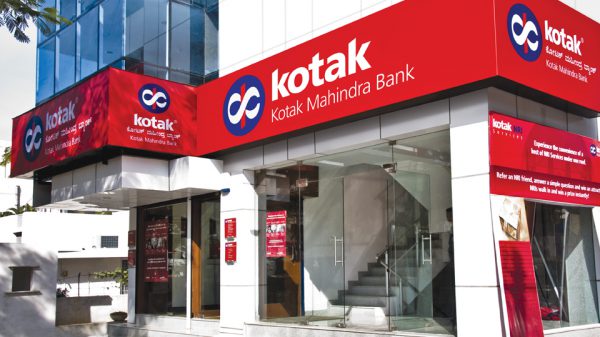What’s the news: “The Government will legislate to require major online digital companies such as Google and Meta to pay a fair price to New Zealand media companies for the local news content they host and share on their platforms,” New Zealand’s Minister of Broadcasting Willie Jackson said in a press statement issued on November 4. It will do so by requiring tech companies to negotiate with publishers to enter into deals.
Why does this matter: Such laws are a big win for media outlets as they have repeatedly claimed that they are not paid a fair share of the revenue for the news content they produce. Just last week we reported that UK publishers have filed a lawsuit against Google. In India, too, publishers have filed multiple complaints with the competition regulator. Some countries like Australia, France, and Spain have already mandated that tech companies pay news publishers for their content, and New Zealand will soon be joining this list. The US and the EU are also planning similar legislation.
FREE READ of the day by MediaNama: Click here to sign-up for our free-read of the day newsletter delivered daily before 9 AM in your inbox.
What’s the issue: Publishers primarily earn revenue from the advertising shown on their platform and Google takes a significant chunk of this revenue as commission for facilitating ad inventory sales. Moreover, Google takes snippets from news publishers and displays them on its News tab or on the Search screen itself, limiting the number of users who actually visit the website of the news publishers, thus further depriving them of ad revenue. “The reduction in income of our media companies is having an impact on news creation with a significant decline in the number of journalists in New Zealand and a reduction in the production of local news content, so this move is also about helping to ensure we can keep producing New Zealand news and stories,” Jackson remarked.
“It’s not fair that the big digital platforms like Google and Meta get to host and share local news for free. It costs to produce the news and it’s only fair they pay. New Zealand news media, particularly small regional and community newspapers, are struggling to remain financially viable as more advertising moves online. So it is critical that those benefiting from their news content actually pay for it.” — Minister of Broadcasting Willie Jackson
How will New Zealand go about this:
- Modelled after Australian and Canadian laws: “The legislation will be modelled on similar laws in Australia and Canada and will act as an incentive for the digital platforms to reach high-quality voluntary deals with local news outlets. The UK and the EU are looking to introduce similar legislation,” the press statement stated.
- Will allow smaller players to get deals as well: “We don’t want a system where only the big players can get a deal. The Australian competition regulator found the big online players have substantial bargaining power, so we need legislation to sit behind any voluntary negotiations that help to level the playing field,” Jackson said. “While some deals have been reached voluntarily, small regional, rural, Maori and Pacific and ethnic media outlets are likely to miss out, so this is about ensuring everyone gets a fair go”.
- Law will be designed as a backstop: “The legislation will be designed as a backstop to encourage companies to reach high-quality voluntary agreements in the first instance. If companies like Google and Meta do good deals then they can avoid the new law being utilised. If an agreement between New Zealand news media and global digital platforms cannot be reached, the legislation sets out processes for negotiations and mandatory bargaining,” Jackson explained. “This is a pragmatic approach, consistent with how other countries are working to ensure local media get a fair price for the news they create. We hope the online platforms engage positively with it and reach high quality voluntary agreements that support local content generation, without the legislation needing to be used,” Jackson added.
- Publishers can form collectives: “In recognition of the power imbalance between the big online platforms and local companies, the legislation will allow media organisations to form collectives without first requiring Commerce Commission approval to negotiate,” the press release stated. This is similar to proposed bill in the US, where publishers are allowed to form joint negotiation entities to collectively negotiate with a tech platform over the terms and conditions of the platform’s access to news content.
“The new legislation will go to a vote in parliament where the governing Labour Party’s majority is expected to pass it,” Reuters reported.
Will such regulations work:
- Such laws incentivise tech companies to make deals by themselves: “The legislative fallback can be powerful. For example, in Australia, the legislation has never been used because companies have done voluntary deals to avoid being subject to the legislation. And in Canada, Google has reached agreements with more than 150 publications ahead of legislation coming in,” the press release explained.
- Australian law has been successful: The Australian government published a report earlier this month claiming that its new law has worked. Since the law took effect, the tech firms have entered into more than 30 deals with media outlets compensating them for their content, the report claims. “At least some of these agreements have enabled news businesses to, in particular, employ additional journalists and make other valuable investments to assist their operations,” the report said.
What’s happening in India?
- CCI investigation: The News Broadcasters & Digital Association (NBDA), the Digital News Publishers Association (DNPA) and The Indian Newspaper Society have each filed a complaint with the Competition Commission of India (CCI) regarding Google’s news aggregation practices. In October, CCI said that it will combine the three complaints in its investigation. The main allegations against Google are:
- Forcing publishers to provide news
- Exploiting publishers for Google’s own economic benefit
- Unfair compensation to publishers
- Unilateral terms and conditions
- Google’s control of the ad industry
- Forced use of AMP
- Disabling header bidding
- Regulations: Apart from the CCI investigation, the Indian government is also looking to frame regulations to make tech companies pay Indian news organisations a share of their revenue. The new regulations could be part of the Digital India Act, a draft of which is expected to be published in the coming months.
This post is released under a CC-BY-SA 4.0 license. Please feel free to republish on your site, with attribution and a link. Adaptation and rewriting, though allowed, should be true to the original.
Also Read
- UK News Publishers Sue Google For Unfairly Depriving Them Of Ad Revenue
- Indian Antitrust Watchdog Receives Third Complaint Against Google News Aggregation Practices
- US’s New Bill To Make Google, Facebook Pay For Digital News Content: Takeaways For India
- Google Strikes Deal To Pay French News Publishers For Preview Snippets






























